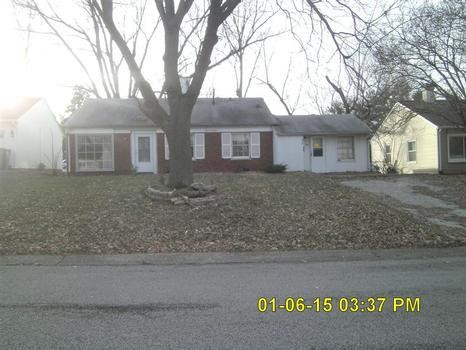REO and Foreclosure Report What you need to know before buying a foreclosure Macon Real Estate
Post on: 16 Март, 2015 No Comment

Recently renovated home in Centerville, GA
Ethan Hutten
Purchasing a foreclosure or Real Estate Owned (REO ) home can be a great investment. Many local house flippers are making huge profits, even in this declining market. However, foreclosures are very risky. Instead of a making money, you could easily end up with a money pit.
As with most investments, the more you educate yourself, the better your chances are at success. Here are some tips you should know before buying a foreclosure or REO property.
1. Do your homework! Find out as much info about the home as possible. There are numerous free or low-cost websites available to assist you. Start with your local tax assessor. (Houston County. Bibb County. Peach County. GA Tax Assessor Search ). You can also find real estate info at: www.zillow.com, www.trulia.com. your home’s value. realtor.com. Be sure you visit the home in person before making any decisions.
2. Act quickly. Once you have completed your research and found the right property, dont wait to submit your offer. There is a lot of competition in the foreclosure market & multiple offer situations are common.
3. Have a pre-approval letter from your lender. If you are financing the home, a pre-approval letter should be submitted with your offer. If you are paying cash . you will need verification of funds from your bank.
4. Have funds available for a deposit/earnest money. Fannie Mae has programs that allow owner-occupants to put down as little as $500. A cash investor may need up to 10% of the purchase price for earnest money. Either way, sellers will take your offer more seriously with a deposit.
5. Must read for house flippers. Fannie Maes Prohibition of Property Flipping in HUD’s Single Family Mortgage Insurance Programs, FR-4615 Short version: If you are an investor flipping a home, you may have to wait 90 days or longer to flip it. There are also additional details you must know if you are selling to a buyer using an FHA insured loan. Not knowing this info can cost you thousands.
6. Avoid courthouse auctions. Buying a foreclosure at an auction is risky, even for seasoned investors. There is little or no opportunity to inspect the property and you may inherit all the liens that are attached to a foreclosed home. If you are buying at an auction, refer to rule #1.
7. Buy Title Insurance. Title insurance is always a good idea, but even more important with REO properties.
8. Make sure your contract clearly states that the seller (bank) will have all utilities turned on for the inspection/due diligence period. Write this in your contract. A home inspection is useless without electricity and water turned on.
9. Negotiate upfront who will be responsible for termite inspection, damage and treatment if needed
10. Be aware of per diems or other hidden cost: Many banks are charging a per diem (usually $50-$150) if the buyer cannot close on time. Make sure your lender and closing attorney are aware of this. A delay of a week or two can add up quickly and cut into your budget. If the delay is caused by the seller, they will usually waive the per diem.
11. You will probably not close on time. With the large number of REO properties on the market, and the legal work that needs to be completed, foreclosures will usually take longer to close. No, you cannot charge the bank a fee for closing late, but be prepared to delay moving, renovations, repairs, etc.
12. Know what block out/grace periods are in effect. Many sellers are now blocking investors from submitting offers when a property is first listed. This block out period is usually 15 30 days and designed to give owner occupants an advantage. Make sure you know upfront what restrictions are being place on the property your interested in. If youre looking to live in the home, take of advantage of the grace periods. If you are an investor, find out if the bank will accept back up offers until the grace period ends.
13. Use a REALTOR experienced in foreclosure and REO properties. An experienced REALTOR is familiar with these tips and how to apply them. Your REALTORs commission is paid by the seller, and costs you nothing. Your REALTOR will know how to negotiate with the banks and find the right properties for you. He or she knows the FHA guidelines, bank restrictions, and can get you the latest home info from the MLS. A REALTOR may also be privy to some REO properties before they hit the market.














